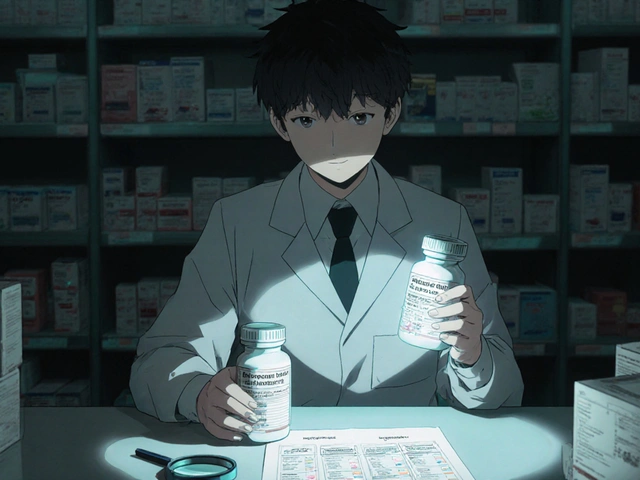
Addressing the Gaps in Contraceptive Measures for Adolescent Acne Patients
During the Society for Pediatric Dermatology (SPD) 2024 Annual Meeting, Dr. Andrea L. Zaenglein, a leading expert in dermatology and pediatrics from The Pennsylvania State University, Hershey, emphasized a critical oversight in the treatment of adolescents with severe acne. This oversight pertains to the prescription of emergency contraception (EC) for patients undergoing isotretinoin therapy, commonly known by its market name, Accutane.
Dr. Zaenglein addressed the significant teratogenic risks associated with isotretinoin, which has been a highly effective yet controversial treatment for severe acne. Given its potential to cause serious birth defects, it’s no surprise that the iPLEDGE Risk Evaluation and Mitigation Strategy was implemented to curb these risks. However, according to Dr. Zaenglein, iPLEDGE has fallen short in appropriately guiding clinicians and educating patients about EC.
The statistics are concerning. From 2011 to 2017, an alarming 210-310 pregnancies per year were reported to the US Food and Drug Administration as a result of isotretinoin exposure. This data reveals a glaring gap in contraceptive education and preparedness among those prescribed this drug. Dr. Zaenglein strongly advocates that adolescents on isotretinoin should be provided with EC as a preventive backup measure, explaining that EC is not an abortion pill, but a necessary contraceptive intervention.
Changing the Narrative Around EC
One of the main hurdles in prescribing EC is clinician discomfort or lack of training. Many doctors are hesitant to discuss or offer EC due to their own unease or insufficient understanding of the method. Dr. Zaenglein urges fellow dermatologists to proactively assume that their female patients are sexually active and to have candid conversations about the associated risks of severe congenital anomalies if pregnancy occurs while on isotretinoin.
Outgoing SPD President Dr. Sheilagh Maguiness echoed Dr. Zaenglein’s sentiment, underscoring the importance of this dialogue. The need for targeted education about contraception in dermatology is urgent. Most dermatologists do not receive adequate training in this area during their medical education, resulting in a significant knowledge gap.
Alternative Hormonal Therapies and Safety Concerns
Dr. Zaenglein also highlighted other hormonal treatments for acne in female adolescents. One such option is spironolactone, which has shown efficacy but comes with its share of side effects. Another viable solution is the use of combined oral contraceptives (COCs). Despite their benefits for acne management, many dermatologists are reluctant to prescribe COCs due to their lack of training and concerns over contraindications such as thrombosis, migraine with aura, lupus, seizures, and hypertension.
Recognizing and addressing these contraindications is crucial to safely administering COCs. Dr. Zaenglein urged dermatologists to educate themselves and their patients on the safe use of these contraceptives, emphasizing that informed decision-making is key to reducing the risk of adverse outcomes.
The Need for Comprehensive Patient Education
The crux of Dr. Zaenglein’s message is clear: educating both clinicians and patients about the importance and use of emergency contraception is paramount. Given the serious nature of isotretinoin’s teratogenic risks, it’s essential that female adolescents and their guardians receive thorough counseling about the potential dangers of pregnancy while on the medication.
The reality is that many teenage patients may not fully grasp the severity of these risks, nor the crucial need for effective contraceptive measures. Dermatologists, as frontline healthcare providers, have a responsibility to bridge this knowledge gap. Informing patients about the availability and proper use of EC can prevent unintended pregnancies and safeguard against the devastating consequences of congenital disabilities caused by isotretinoin exposure.
Moving Forward: A Call to Action for Dermatologists
In conclusion, the presentations at the SPD Annual Meeting serve as a stark reminder of the ongoing need for improved contraceptive education among dermatologists. Dr. Zaenglein’s call to incorporate EC into the treatment regimen for adolescent acne patients on isotretinoin is more than an option – it’s a necessity. Through comprehensive patient education and proactive prescription practices, dermatologists can play a pivotal role in mitigating the risks associated with isotretinoin, ensuring the health and safety of their young patients.
Ultimately, the goal is to foster a more informed and prepared approach to acne treatment, where the potential for unintended pregnancies is significantly reduced. As the conversation around emergency contraception continues to evolve, it’s hopeful that more dermatology professionals will heed the insights shared by experts like Dr. Zaenglein, leading to better outcomes for adolescents everywhere.





chris mattox
July 31, 2024 AT 18:10The landscape of teen acne care is like a vivid tapestry, each thread representing a crucial safety net. When isotretinoin enters the picture, the colors must be bold yet precise, especially around contraception. Emergency contraception is not an afterthought; it’s the bright stitch that prevents a tragic tear in the fabric. Let’s make sure every dermatologist carries that needle of knowledge into every consultation.
Jackson Whicker
August 2, 2024 AT 14:00One cannot simply glide past the abyss of ignorance that still plagues our dermatological academies without a thunderous call to higher intellect. The iPLEDGE system, though a commendable scaffolding, often collapses under the weight of complacent practitioners who fear the very act of prescribing life‑saving prophylaxis. In the grand theater of medicine, we must cast emergency contraception not as a whispered aside but as a lead‑role soliloquy, resonating through clinic corridors. To withhold EC is to flirt with destiny’s cruel irony, allowing teratogenic fate to stalk vulnerable youths like a silent predator. Moreover, the cultural reticence to discuss sexual health betrays an outdated patriarchal script that must be rewritten. Knowledge, after all, is the true emancipation that shatters the shackles of preventable tragedy. When a teen steps onto the isotretinoin stage, the script should already include the safety net of EC, embroidered in bold, unapologetic ink. Dermatologists, as stewards of skin and futures, carry a moral imperative louder than any pharmaceutical profit margin. The silence surrounding EC is not neutrality; it is complicity. By championing proactive conversations, we illuminate pathways that were once obscured by stigma. Let us, therefore, eschew the timid murmurs of the past and adopt a chorus of advocacy that reverberates across continents. The data-those 210‑310 pregnancies per year-are not mere numbers but haunting testimonies of missed opportunity. Each statistic is a child whose potential was eclipsed by a preventable oversight. In the crucible of clinical practice, we must forge a new paradigm where EC is as routine as the prescription pad itself. Let this be the epoch where empathy and expertise converge, and where the echo of each teenager’s future is secured by the steadfast hand of informed care.
Audrin De Waal
August 4, 2024 AT 21:33Yo, African docs gotta own this EC game and protect our teens.
parag mandle
August 7, 2024 AT 05:06From a clinical standpoint, the integration of emergency contraception into isotretinoin protocols is a non‑negotiable safeguard. The pharmacodynamics of isotretinoin render any unintended conception a high‑stakes scenario, demanding preemptive measures. Educating patients about the timing, efficacy, and accessibility of EC empowers them to act decisively. Moreover, training dermatology residents on EC prescription eliminates the hesitation that often perpetuates this risk. In practice, a brief, honest dialogue can dramatically reduce the incidence of teratogenic outcomes.
Shivali Dixit Saxena
August 9, 2024 AT 12:40Fantastic insight! Let’s push EC education forward now!!!